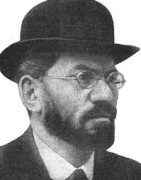The toxic blood libel accusation, rooted in medieval Europe, emerged with a vengeance several times during the interwar period in the Soviet Union.
This may come as a surprise to those who assume that such primitive manifestations of antisemitism would have been inconceivable in a supposedly progressive country like the Soviet Union.
But a number of such incidents occurred between the 1920s and the 1940s, says Queens College scholar Elissa Bemporad, the author of Becoming Soviet Jews: The Bolshevik Experiment, published recently by Indiana University Press.

In a lecture on Sept. 30 at the University of Toronto’s Centre for Jewish Studies, the New York City-based historian cited several separate instances in which Soviet Jews were accused of blood libel, an accusation revolving around the patently false and absurd claim that Jews bake matzoh with the blood of Christians they have murdered.
The first recorded case of ritual murder emerged in 12th century Britain, the first European nation to expel a Jewish community.
Further cases throughout the rest of Europe surfaced in the succeeding centuries, but the most notorious one coalesced around Mendel Beilis, a Russian Jew who was acquitted of the charge in a sensational trial in 1913.
The fall of the czarist empire in 1917 led to the full emancipation of Russian Jewry. Under the new Bolshevik order, antisemitism was roundly condemned by Soviet leader Vladimir Lenin and his successor, Joseph Stalin, and Jews achieved unprecedented status.

Nonetheless, the embers of antisemitism continued to flicker.
In 1926, on the eve of Passover, a young Ukrainian woman in the town of Kaniev disappeared, prompting her father to accuse a Jew of murdering her so that her blood could be used in the baking of matzoh.
She was found in a hospital, having gone there to have an abortion, noted Bemporad.
During Passover in Minsk in 1937, two Belorussian workers in a shoe factory who were members of the Communist party accused a fellow worker, a Jew, of having killed a man. Jews protested, forcing Moscow to form a government commission to investigate the accusation. Consisting in equal parts of Jews and non-Jews, the panel categorically rejected the very existence of ritual murder, but its findings were not published.
In the mid-1940s, blood libel cases popped up in Vilnius, the capital of Lithuania, and in Lvov, a major city in the Ukraine. Bemporad did not elaborate at any length on these cases.
Long after the collapse of the Russian empire, the blood libel accusation persisted because antisemitic myths were so deeply embedded in Russia’s soil, she suggested.
During the Bolshevik era, 90 million peasants migrated into cities, bringing with them a panoply of anti-Jewish notions and beliefs. Accusing Jews of blood libel was a way of venting their resentment of modern urban life, she suggested.
Among some Soviets, she added, kosher butchery and circumcision were regarded as brutal and anti-modern because they were both bound up in blood-letting rituals.
During the Nazi occupation of the Soviet Union, German propagandists fanned the flames of antisemitism, finding a receptive audience in certain quarters.
Antisemitism was supposed to have been eradicated by communism, but nothing could have been further from the truth, as the post-1945 era proved again and again.